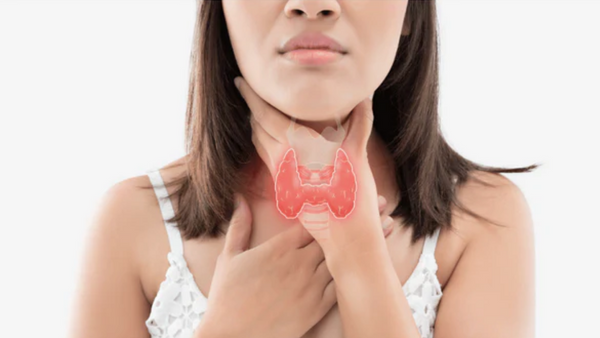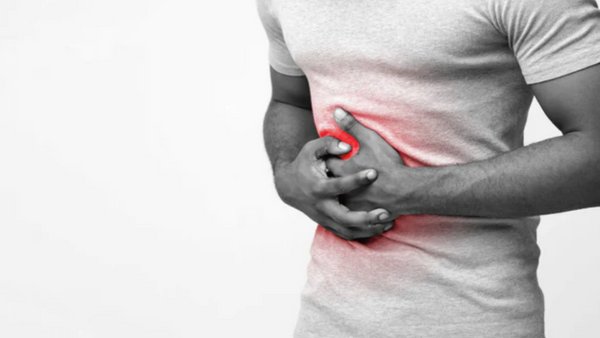Graves' disease is an autoimmune thyroid disease. The body's own antibodies attack the thyroid tissue, causing hyperthyroidism.
The causes of Graves' disease are not well understood. Pregnancy, smoking, stress and viral infections are considered possible triggers. Genetic predisposition probably also plays a role.
The thyroid regulates energy metabolism. If it is overactive, energy metabolism runs at full speed.  Graves’ disease is characterized by the following symptoms:
Graves’ disease is characterized by the following symptoms:
- Sleep disorders
- nervousness
- Light sweating and heat intolerance
- Weight loss
- Heart palpitations, high blood pressure and cardiac arrhythmias
- Shaky hands
- In women: menstrual disorders, in men: impotence
- Mood swings
- Hair loss
Many sufferers also experience visible bulging of the eyes. This is due to inflammation in the eye socket and changes in the connective tissue of the eye.
The thyroid gland can also become enlarged. This is known as goiter or struma. This causes a feeling of pressure and tightness in the throat when swallowing and breathing.
Graves' disease is traditionally treated with medication that inhibits the production of thyroid hormones. These are called antithyroid drugs. The hyperthyroidism often subsides after the medication is stopped.
If antithyroid drugs do not help in the long term, radioiodine therapy is usually carried out. The radioactive iodine destroys thyroid tissue, which reduces the production of thyroid hormones. However, there is a risk of slipping from hyperthyroidism to hypothyroidism.
Micronutrients can support the treatment of Graves’ disease.
selenium
Selenium is important for thyroid function because it is a component of enzymes needed to produce thyroid hormones. Selenium also helps reduce oxidative stress in the thyroid. Antioxidant enzymes that fight free radicals and counteract oxidative stress contain selenium.
Patients with Graves' disease often do not have sufficient selenium. Initial studies suggest that selenium could reduce the concentration of antibodies against thyroid tissue in Graves' disease and improve the quality of life. [1]
Vitamin D
Vitamin D regulates the immune system and counteracts inflammation. People with Graves' disease are more likely to suffer from vitamin D deficiency than healthy people. Vitamin D deficiency is also a risk factor for Graves' disease and other autoimmune diseases. [2]
In a small study, anti-thyroid antibodies decreased after taking vitamin D. However, this needs to be confirmed in further studies.
Antioxidants
People with hypothyroidism experience increased oxidative stress in the thyroid gland. This is also reflected in the blood: Due to the increased need for antioxidants, the levels of antioxidants such as coenzyme Q10 and vitamin E are reduced. [3]
Patients with Graves’ disease should therefore pay particular attention to ensuring they have a good supply of antioxidants.
The body’s most important antioxidants include:
- zinc
- Vitamin E
- Vitamin C
- selenium
- Coenzyme Q10
Secondary plant substances such as curcumin and OPC also have antioxidant effects and can counteract oxidative stress. [4]
In a small study, an antioxidant mixture of manganese, zinc , copper , selenium , beta-carotene, vitamin C and vitamin E was able to reduce oxidative stress in Graves' disease. [5]

Conclusion: Essential nutrients should not be missing in Graves’ disease
A lack of certain nutrients appears to promote the development of Graves' disease. Those affected also have an increased need for antioxidants, which are often lacking. People with Graves' disease should ensure they have a good supply of these nutrients.
[1] https://www.ncbi.nlm.nih.gov/pmc/articles/PMC7033064/
[2] https://www.endocrine-abstracts.org/ea/0044/ea0044p257
[3] https://pubmed.ncbi.nlm.nih.gov/10598831/

















